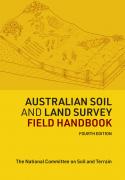Ecological engineering is about manipulating farm habitats, making them less favourable for pests and more attractive to beneficial insects. Though they have received far less research attention and funding, ecological approaches may be safer and more sustainable than their controversial cousin, genetic engineering. This book brings together contributions from international workers leading the fast moving field of habitat manipulation, reviewing the field and paving the way towards the development and application of new pest management approaches.
Chapters explore the frontiers of ecological engineering methods including molecular approaches, high tech marking and remote sensing. They also review the theoretical aspects of this field and how ecological engineering may interact with genetic engineering. The technologies presented offer opportunities to reduce crop losses to insects while reducing the use of pesticides and providing potentially valuable habitat for wildlife conservation.
With contributions from the USA, UK, Germany, Switzerland, Australia, New Zealand, Kenya and Israel, this book provides comprehensive coverage of international progress towards sustainable pest management.




















